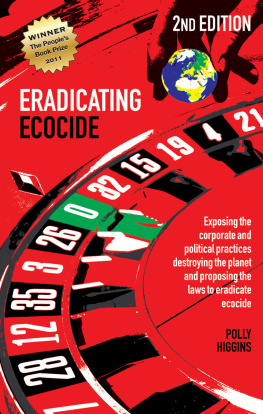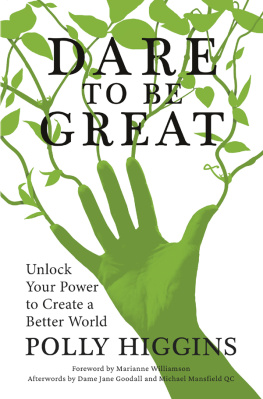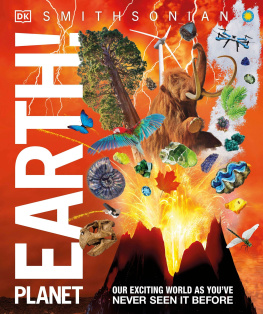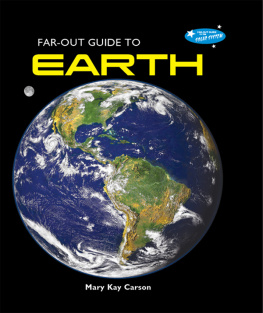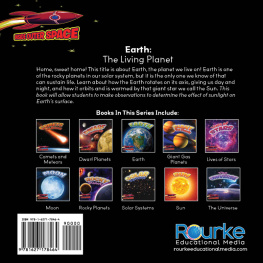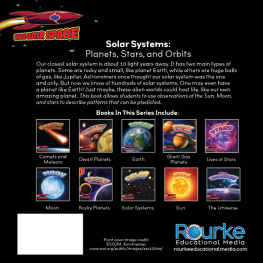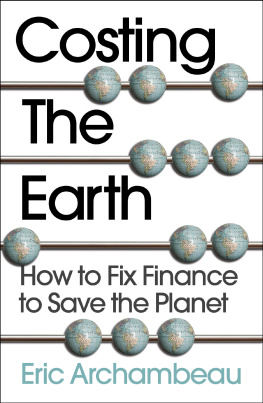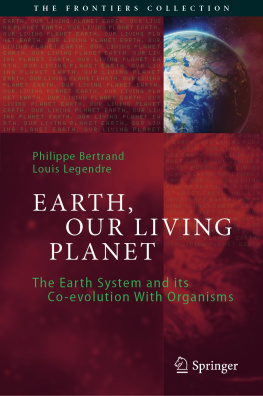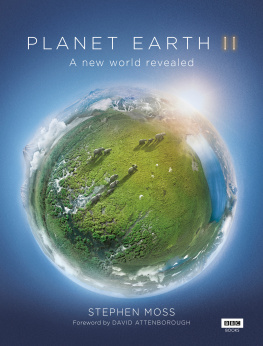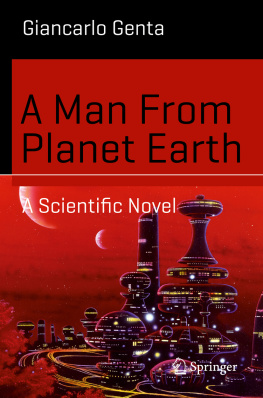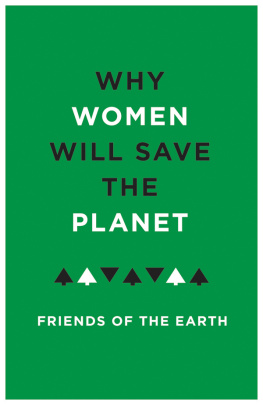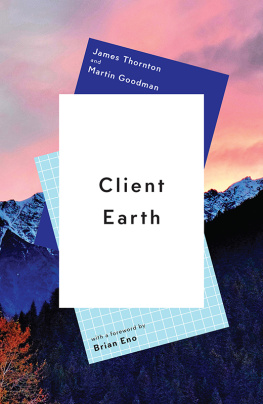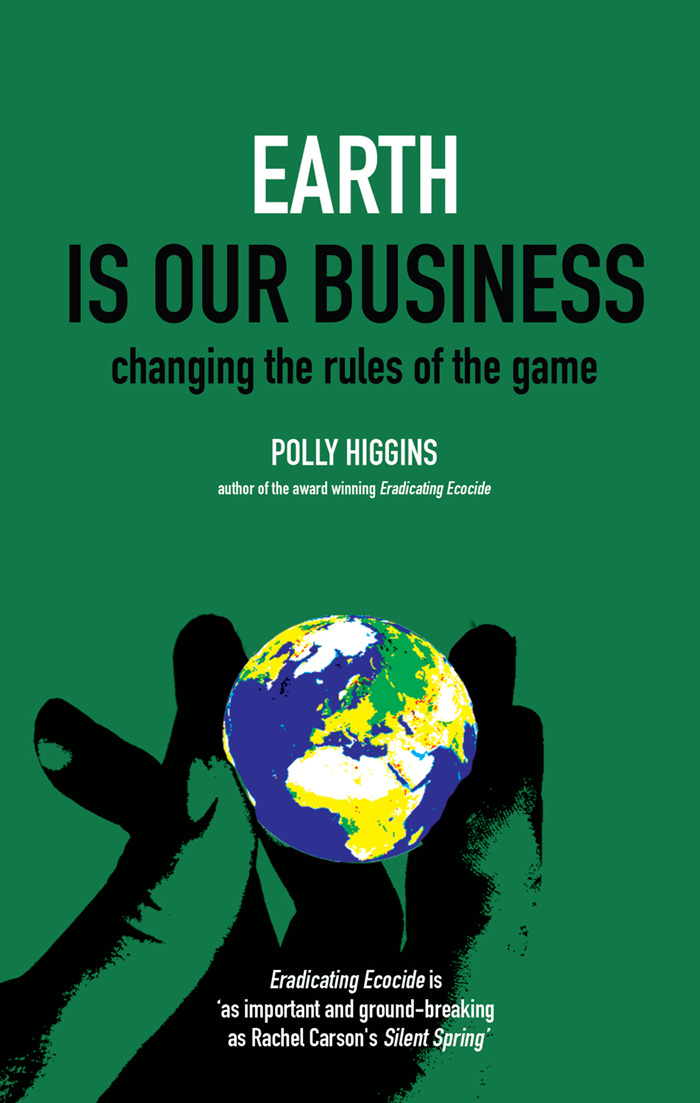Winner of The Peoples Book Prize (non-fiction) 2011 What the People said about Eradicating Ecocide

Essential and timely. A great book for us all.
Preserving the earth for future generations of all living things is vital. This book focuses on how to do this legally, how to wake the public to possible solutions. I vote for Eradicating Ecocide by Polly Higgins.
A fantastic piece of pursuasive argument. This should be read by everyone in No.10 and the White House.
I vote for Eradicating Ecocide.
This is the book that legal systems around the world are waiting for drawing on its ideas to overturn 500 years of denying nature a legal voice. This should be book of the century.
This book is one of the most important books for solving our most vital problem it is literally about the survival of life as we know it on our planet! Polly brings us what we so desperately need: finally, an elegant, inspiring, ambitious yet totally possible solution to save ourselves!
Go Polly! xxx
This book is important.
If anyone can help save the planet, Pollys book can.
Not the most optimistic book, but *crucial* for our future wellbeing, or even survival!
If this book fails to win the prize, humanity deserves what its got in store
Important ideas and practical application!
Essential reading!
A must read for anyone who cares about having a socially just and liveable tomorrow Jim
Very good.
An essential book that can help us create a better world.
Voting remains open until midnight, May 31st.
Interesting read!
Pollys book is essential reading to anyone interested in looking after the world and not interested in green wash. Gareth
More comments at the back of the book
Earth is our Business
A LSO BY P OLLY H IGGINS
Eradicating Ecocide (2010)
Earth is our Business
changing the rules of the game
POLLY HIGGINS

SHEPHEARD-WALWYN (PUBLISHERS) LTD
2012 Polly Higgins
Some rights reserved. [license_3.0] This work is licensed under a
Creative Commons Attribution-NonCommercial_NoDerivs 3.0
Unported License. For more information please visit:
http://creativecommons.org/licences/by-nc-nd/3.0

First published in 2012 by
Shepheard-Walwyn (Publishers) Ltd
107 Parkway House, Sheen Lane
London SW14 8LS
www.shepheard-walwyn.co.uk
British Library Cataloguing in Publication Data
A catalogue record of this book
is available from the British Library
ISBN-13: 978-0-85683-288-8
This book is printed on Forest Stewardship Council certified paper
Cover design by Tentacle
www.tentacledesign.co.uk
Typeset by Arthouse Publishing Solutions Ltd,
www.arthousepublishing.co.uk
Printed and bound in the United Kingdom
by Good News Digital Books, Hallsford Bridge, Essex
D EDICATION
TO ALL WHO CARE FOR OUR E ARTH
TO ALL WHO BELIEVE THAT E ARTH IS OUR BUSINESS AND
TO ALL WHO ARE IN SERVICE TO THE WIDER E ARTH COMMUNITY
Contents
Acknowledgements
I THANK all who are travelling on this journey with me and who have helped me along the way to each destination and viewpoint. Without you, the journey would not have happened. Each and every person who has stopped to show me the way has been like a marker on the road to the summit. Its a rocky and steep ascent, with lots of paths going off in other directions. Some have been explored, others have been missed. I give thanks to you all.

Introduction
C RIMES Against Peace is a generic term used to describe four existing crimes that are deemed to be so abhorrent that they have been identified as international crimes against peace. These apply to humanity as a whole, regardless of whether or not your country has put in place the laws to prevent them. They are crimes which cause the diminution of our right to peaceful enjoyment of life. Globally they are considered the worst of all crimes; the four are genocide, crimes against humanity, war crimes and crimes of aggression.
They are predominantly crimes which protect our human right to life. One of them, however, identifies environmental destruction as a crime, and then only during war-time, not peacetime. Thus, we have a missing 5th crime against peace: ecocide the environmental equivalent of genocide. This book expands on my first book, Eradicating Ecocide, which sets out the legal and moral premise for making ecocide a crime. Here I examine the criminal aspects of the Law of Ecocide in full detail with a sample indictment and Ecocide Act which was used as the basis for a mock trial in the UK Supreme Court on 30 September 2011. Both were tested and the outcome is an Act that is ready to implement, when ecocide is made the 5th crime against peace.
The crime of ecocide is a natural evolution of law: the Ecocide Act, set out in Appendix 2, is not radical in its remit. On the contrary, it is part of an evolution of legislation dealing with the impact of pollution and the principle of superior responsibility. In the eyes of the law, creating the crime of ecocide is not about closing the door to evil. It is in fact about protecting a higher value: the sacredness of life, all life.
Those who are prima facie guilty of committing ecocide are not in themselves evil many companies have bought into the norm that it is collateral damage to destroy the earth whilst serving humanity. There is rarely wilful intent where companies are looking to help satisfy human needs, such as energy. Rather it is a blindness that prevents many from facing the truth that human needs can be well served without diminishing the earths capacity to support life as we know it.
Genocide, unlike ecocide, was viewed as an incomparable evil. Slavery was viewed as a manifest evil. Both were moments in history when we reached a junction prohibit and prevent or allow it to continue. Before laws were made prohibiting both genocide and slavery, neither were illegal: in fact both generated profit for many parties. The prohibitions that followed did not mean that economies collapsed. New ones evolved and new ways were found. What was once the norm, became overnight the exception. It was law that shifted societal norms. The law has a powerful force which can shape our world in ways that we can hardly comprehend. It took the holocaust to drive in the new way of thinking that gassing humans was a crime. Prior to that, it wasnt recognised as an international crime, which made it almost impossible for people like Sophie Scholl to stand up and object. She and others in Nazi Germany were fighting against something that had been endorsed by their government and the media as the norm, no matter how unpleasant it was. In so doing, the people were effectively silenced. Without the word for genocide in their vocabulary, it was almost impossible to identify what was a crime. Without it, all remained hidden in the eyes of the world for quite some time.
Genocide was justified on self-interest and collective rationality, obscene though it seems to us today. Now catastrophic corporate rationalism places self-interest and growth as justification for destruction of the environment. Those who are guilty of destroying our planet, rationalise their actions by saying they have the right to make money without taking responsibility for decisions that adversely impact all life as we know it. This is our blindness.


